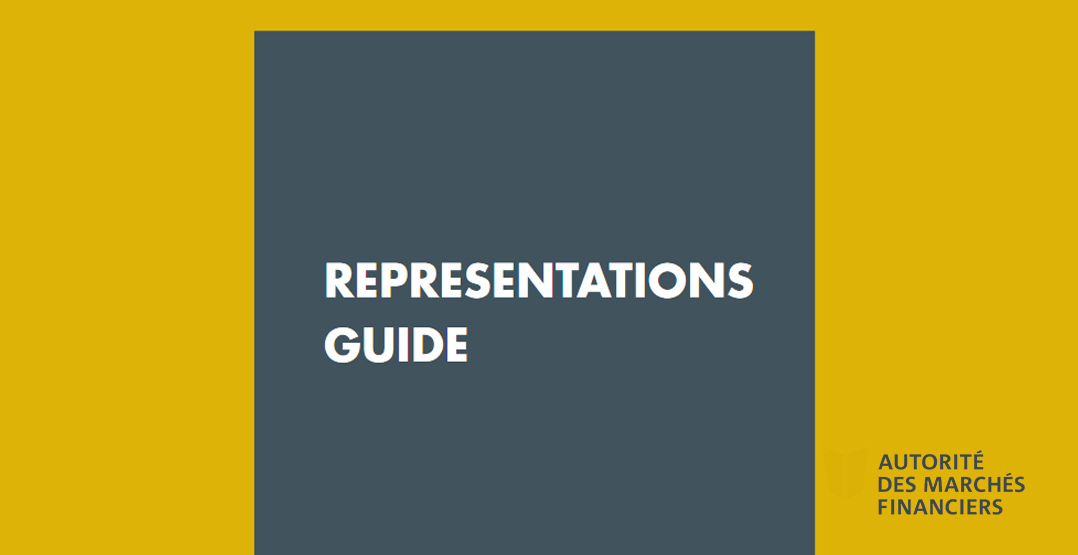Professional titles: you can’t just make them up!

The Autorité des marchés financiers has just published an update of its Representations Guide, an initiative made necessary by the growing presence of electronic communications.
“The guide was last updated in 2013, when professionals made little use of the Internet to communicate with their clients. It was therefore necessary to establish clearer rules regarding online representation, whether it be an electronic business card, signing an e-mail, sending text messages, or corresponding electronically,” explains Geneviève Côté, an expert regulatory analyst at the Autorité des marchés financiers (AMF).
The objective of these rules is to protect consumers.
These modern means are in fact subject to the same representation regulations set out in the Act respecting the distribution of financial products and services.
A second reason prompted the financial markets regulator to move forward with this update. “Mortgage brokerage has been regulated by the AMF since 2020, it was therefore necessary to add examples of good practices specifically for mortgage brokers,” says Geneviève Côté.
The importance of using the right professional title
Professionals, as well as applicants on probation (or in training), can refer to this guide to determine which mandatory titles they are authorized to use according to their field of practice. At the same time, they will find a list of those that are prohibited. Among these are: consultant emeritus, senior representative, insurance specialist, expert, etc.
“Titles with qualifiers must be avoided because we don’t really know what they refer to and it can be confusing for clients. The objective of these rules is to protect consumers.
Indeed, a title confirms that the professional has completed the required training and has the skills required to practice. It also indicates that he or she is supervised by an approved accreditation body and subject to a complaint and disciplinary process. Presenting oneself with the proper title assigned to one’s field of practice is an obligation that must be respected.
“Every year, the AMF intervenes with individuals who use an unauthorized title. Most of the time, we spot them during inspections,” notes Geneviève Côté. “We then accompany the professionals or firms, which are also subject to these regulations, to help them comply. If they don’t correct the situation, they can be subject to penalties.”
Many representatives, however, prefer to be proactive and ask the AMF about the rules to follow. “Our information centre gets its fair share of questions related to representation. There is a real general desire to do things right.”
Non-exhaustive list of “titles” that cannot be used:
Expert
Consultant Emeritus
Financial Advisor
Financial Coordinator
Private Wealth manager
Independent Financial Security Advisor
Insurance Broker for Canadian Citizens and Residents
Insurance Specialist
Senior Representative
Mutual Funds Representative in the Province of Quebec
Financial Strategy and Investment Advisor
Specialist in Advanced Wealth Management
Broken trust
Dealing with a professional who uses a misleading title isn’t always without consequences for investors. One Ontario retiree who entrusted his life savings - nearly $1 million - to RBC Dominion Securities learned this the hard way, as CBC News reported in 2017.
When he threatened to leave the bank because he was dissatisfied with the services of his “Financial Advisor” (an unregulated title), he was offered to transfer the management of his money to a “Vice-President”, who turned out to be a broker’s representative. In six years, his investments earned him less than 3% and cost him more than $30,000 in fees. The man, who was confident at first, eventually felt cheated.
Do’s and don’ts
The Representations Guide provides a wealth of information on the various forms of representation available to professionals for use different communication tools, including business cards, print or online advertising, explanatory brochures, websites, signs, electronic signatures, etc. Illustrated examples of what to do (and what not to do) make it easier to avoid unfortunate mistakes.
One section also deals with the rules to be followed during an initial client meeting, in person or remotely, so that the client has all the information necessary to identify the representative, determine their field of practice, know on whose behalf they are practising and how to contact them. Another section encompasses the obligations of firms, independent partnerships, and independent representatives.
References
The Representations Guide is available here.
Read also
INDUSTRY'S EVENT
In-Person
A l’agenda : tendances et innovations en avantages sociaux, santé mentale et bien-être des ressources humaines.